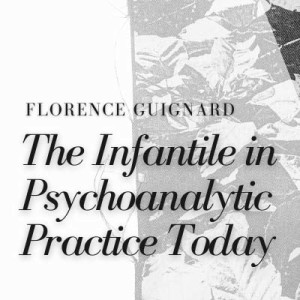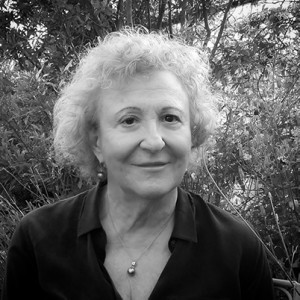Talks On Psychoanalysis
adolescence
Episodes

Thursday Dec 14, 2023
Thursday Dec 14, 2023
The place of sexuality in psychoanalytic treatment and training today: Can we observe a disappearance of sexuality in case reports and supervisions?
How does the evolving discourse on sexuality influence psychoanalytic practice and training? In an era where sexual dysphoria is seemingly on the rise, particularly among younger generations, questions arise about the current positioning of Freud's drive theory and the status of sexual issues in psychoanalytic education. Are we witnessing a shift where sexuality loses its central place within psychoanalytic thought?
In this episode of the IPA Talks On Psychoanalysis podcast series, we explore these questions through a comprehensive discussion. The focus is on the potential diminution of sexual themes in psychoanalytic case reports, as observed in recent years, and its implications for psychoanalytic methodology. The discourse originated in the 2021 supervisors' and training analysts' conference of the German Psychoanalytical Association (DPV) in Cologne, Germany and quickly spread to other places, reflecting global concerns about the reduced emphasis on sexuality in candidates' reports for qualification.
This exploration revisits some cornerstones of Freud's seminal theories but also examines the more modern theories and psychoanalytic techniques that emphasize transference-countertransference dynamics for the understanding of sexual fantasies and identities. The role of societal changes, shifts in sexual identity, and the impact of media on sexual behaviour and expression are critically analyzed.
The paper featured in this episode has been previously presented at various events, including a SPP Webinar and the 53rd IPA Congress in Cartagena. It has been translated and published in several psychoanalytic Journals. The IPA Talks On Psychoanalysis podcast series now offers it to its listeners in German, English, Spanish and Italian.
You can access the recent edition of the APA's Journal of Psychoanalysis, featuring a publication with two accompanying commentaries by Alicia Killner and Beatriz Zelcer, at this link: https://revista-de-psicoanalisis.apa.org.ar
Rotraut De Clerck is a renowned psychoanalyst of the German Psychoanalytical Association (DPV) and has been a long-term guest to the British Psychoanalytic Society (BPS). Her work notably intersects psychoanalysis with culture and public discourse. She has carried out the “Psychoanalysis in Literature – Literature in Psychoanalysis” series at the Literaturhaus Frankfurt, fostering dialogue between contemporary writers and Freud's texts. De Clerck's clinical interests include theories on the dynamic interplay of narcissism and object love, of the unconscious and changes in sexuality, including homosexuality “neo-sexualities” and the concepts of masochism. De Clerck's contributions extend to psychoanalytic portraits of literary figures like Albert Camus, Virginia Woolf, painters like Maria Lassnig and notably Lucian Freud. She chairs the EPF's “Psychoanalysis and Literature group and serves as a Consultant on the IPA Culture Committee. Her recent projects focus on the place of sexuality in psychoanalytic theory and practice today.
Link to the paper https://docs.google.com/document/d/1jwtEt3rBf0BSGsl_uFxv6xwVrPPr_dvR/edit?usp=drive_link&ouid=112457875385152358388&rtpof=true&sd=true
This episode is available also in:
German
Spanish
Italian
A subtitled version of this podcast is available on our YouTube channel:https://youtube.com/playlist?list=PLhxiwE76e0QaOquX3GujdwNLFsgxUQNXz&si=yf381EDu3pess6Yz
This Podcast Series, published by the International Psychoanalytical Association, is part of the activities of the IPA Communication Committee and is produced by the IPA Podcast Editorial Team.
Head of the Podcast Editorial Team: Gaetano Pellegrini.Editing and Post-Production: Massimiliano Guerrieri.

Sunday Sep 12, 2021
Sunday Sep 12, 2021
One day, in 1996, with a leap from adjective to noun, a new concept arose within psychoanalytic thought: the Infantile. This term remained so pertinent over time that it has become the core of the title of the 52nd IPA Congress.
Florence Guignard was the author who first formulated it in such an accomplished form, and in today's episode she draws important clinical consequences from the theoretical reflection on this concept concerning the analytic relationship and the interpretative activity of the psychoanalyst in their daily work.
The Infantile -with a capital “I”- is a limit-concept, which aims at describing a "flexible" structure, at the limits of our animality, at the borders of our Unconscious and our Preconscious system. Being the first and main means of organization of our Ego drives, the Infantile is also the place of our primary fantasies and of the mnemonic traces of our first sensory-motor experiences. It is the most acute point of our emotions and feelings in their non-verbal state.
Florence Guignard describes how the patient’s Infantile and the analyst’s Infantile are interweaving in the transference-countertransference situation, as beautifully illustrated by Mikael Vilchez artistic creation, enriched by Rhoda Bawdekar’s interpretation of it. Florence Guignard shows us how the Infantile can serve as a lever in the case of blind spots and stopper interpretations.
A clinical example of a blind spot in the analyst will be published in the second volume of “Psychoanalytic Concepts and Technique in Development. The psychoanalyst in the city”.
Florence Guignard is a Swiss and French psychoanalyst, Training analyst of the Paris Society and a direct member of the IPA for the Training in Child and Adolescent Psychoanalysis. She co-founded the European Society for Child and Adolescent Psychoanalysis.
She is an internationally renowned author and since 1970 her work, translated into several languages, notably on female sexuality and the child, has contrìbuted significantly to the renewal of psychoanalytical thought.
link to the paper https://docs.google.com/document/d/1UC1QF8Yirl8CZ5i42rWwTxvD5_qfwc5B/edit?usp=sharing&ouid=112457875385152358388&rtpof=true&sd=true
This episode is available also in French
Credits© Forbidden Denimeries by Mikael Vilchez, 2021Visual editing and design, Rhoda BawdekarMusic, Chopin Ballade no. 4, Op. 52

Tuesday May 04, 2021
Tuesday May 04, 2021
The work proposes that the contemporary analyst can and should listen to the varied languages of man and, with a specific technical stance, help the patient, through intermediary moments, to think what was unthinkable, to name what was unnameable. It departs from listening to the language of the non-symbolic, which depends on the analyst’s capacity for reverie and their capacity to metaphorise the patient’s reports, to propose instead the construction of symbolic forms through the use of scaffolding for thinking. This is what permits the historicising, the placing of the patient’s life in a narrative. If this does not take place, there is an eternal presentification of the traumatic emotional experience, resulting in the “murder of time” (Green).
Ruggero Levy is a Psychoanalyst, Full Member and Training Analyst of the Psychoanalytic Society from Porto Alegre (SPPA), Brasil; Former President of SPPA; Chair of the IPA Working Parties Committee; Keynote paper/Major Lecture at the 50th IPAC in Buenos Aires, 2017; Ex-IPA Board Member from 2011-2013 and from 2013-2015; Professor and supervisor of the Federal University of Rio Grande do Sul in the Courses of Specialization on Children, Adolescent and Adult Psychotherapy; Author of many book chapters and scientific papers published in regional, national and international psychoanalytic reviews.
This episode is available also in Portuguese
Ruggero Levy (2019) The polyphony of contemporary psychoanalysis: the multiple languages of man, The International Journal of Psychoanalysis, 100:4, 656-673, DOI: 10.1080/00207578.2019.1636251
Pair of Transverse Flutes, mid-18th century, Johann Wilhelm Oberlender (the Elder) Courtesy Met Museum, New York.

Tuesday Sep 29, 2020
Tuesday Sep 29, 2020
In this episode Irene Ruggiero explores the developmentof the subjectivation process with the aim of demonstrating how adulthood analysis of adolescent problems that have not been worked through constitutes an essential condition for reopening an unfinished subjectivation process. The re-elaboration of suspended adolescent dynamics in adulthood analysis re-ignites a process of spiral temporality, opening up the possibility of reconsidering both adolescent and childhood experiences in the double temporality established by psychoanalytic listening.
Irene Ruggiero, is a Full Member and Training Analyst of the Italian Psychoanalytical Society and of the International Psychoanalytical Association. She is Secretary of the National Commission for the psychoanalysis of children and adolescents, former Scientific Secretary and President of the Psychoanalytic Center of Bologna. She has actively participated in the scientific life of SPI, IPA and EPF, and is the author of numerous publications in the most important Italian and foreign Journals, as well as in collective volumes. Among her main areas of interest: the adolescence, the body and the analytical relationship. On these topics, she has recently edited two volumes: with Anna Nicolò, "La mente adolescente e il corpo ripudiato"; and, with Nicolino Rossi, "La relazione analitica".
Episode read by Danielle Mitzman, broadcast journalist.
Link to the paper https://drive.google.com/file/d/11Q0LTUpjUuGxqtgTBnpI7sbZVDIk1HxU/view?usp=sharing
Reference to the full paperRuggiero, I. (2015). Adolescent Dynamics in the Analysisof Adults and Reopening of the Process of Subjectivation. The Italian Psychoanalytic Annual, 9:7-24
La mente adolescente e il corpo ripudiato,(2016) Franco Angeli
La relazione analitica,(2016) Franco Angeli
This episode is available also in Italian